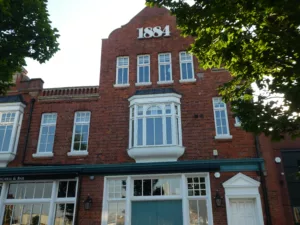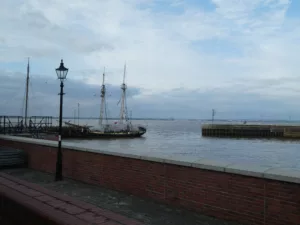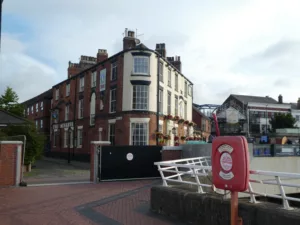
Marina 2024
1. Reasons for research.
During one of the hottest weeks this summer, I visited Hull to research my current novel. It’s set in Hull during one day in 1920. Because I was born in Hull, I’m familiar with the layout of the city. What I was looking for was information about the police role in the events of 20 and 21st June. The History Centre had documents of police reports to the Watch Committee, which I hoped would include an Annual Report from the Chief Constable. I also wanted descriptions of the buildings where the violence took place. In particular Paradise Place and Great Passage Street.
2. Characters
In an earlier blog I explained that historical information was scarce.This time, in the History Centre I was able to read police reports of what was described as ‘alleged riots’. The Hull Daily Mail used markedly different language, though in both accounts the emphasis was on the behaviour of the coloured men. Inevitably, as contemporary sources, their perspective will be different from mine living in 21st century. I’m also telling a story. In doing so I want to shed some light on the complex reasons for each character’s behaviour. The police reports were another glimpse of what happened.
3. Setting
The setting for most of the novel is now deep beneath concrete carriage ways. The beautifully named Paradise Place is nowhere to be seen, Great Passage Street and its Marlborough pub have long gone. As yet, I haven’t found a reference to the origins of these streets and their buildings. Many in Paradise Place in particular became apartments for boarders. From Kelly’s Trade Directory 1919 and the 1921 Census, I was able to get a clearer picture of who inhabited these streets. For example:10 Great Passage St. was rented by 28 year Hull born hairdresser and his Russian wife, 22 by an Old Age Pensioner, with his wife and invalid son, 26 by a General Draper. Businesses and homes were combined.Tailors, hairdressers and many others, worked from home. Many residents described themselves as dock labourers, cooks & stewards, general labourers – but out of work.
What I hadn’t grasped was how close Princes Dock, Old Dock and Queen’s Docks were to the city centre. The harbour walls have probably been renovated, but I was able to imagine how the steam ships would enter initially Princes Dock, then the Old Dock and finally Queen’s Dock. The ships reached the latter by a series of locks. One Captain is reputed to have claimed it took him as long to reach his berth in Queens Dock as it did to sail from St. Petersburg! All were part of the 1920’s city. Princes Dock Street, Humber Dock Street and the curiously named Dagger Street still run where they did in 1920.
 Humber Dock Street retains an older part of a building
Humber Dock Street retains an older part of a building
When I looked up, I could see how the buildings might have looked before they were modernised. Today’s Whitefriargate leads to Old Town and its museums. Princes Quay has been transformed into a modern shopping mall, while public buildings – the City Hall on Victoria Square, (still a popular meeting place), the Guidlhall and the Central Police station on Alfred Gelder Street, have changed very little, from the outside at least. Cobbled streets remain. In imagination at least, I heard horses’ hooves rather than motor horns and the blare of ambulances and police cars.
 Site of a former warehouse on Princes dock street
Site of a former warehouse on Princes dock street
 Modern harbour wall with exit to tidal River Humber
Modern harbour wall with exit to tidal River Humber
The city was bombed during two World Wars. The docks have disappeared with the loss of trade, but the rivers Humber and Hull have laid the foundation for the city’s infrastructure. Built on marshland, drained to prevent floods, it’s becoming easier for me to imagine the events of 1920. A boost to my confidence.
 The Minerva Pub overlooking River Humber. It was established in 1829. Note flood gates
The Minerva Pub overlooking River Humber. It was established in 1829. Note flood gates
References: Hull History Centre, Worship Street; Hull Daily Mail, 21st June, 1920 Hull Riots; Black 1919: Riots, Racism and Resistance in Imperial Britain – Jacqueline Jenkinson (2019) Liverpool University Press
Reading: Poetry Unbound: 50 Poems to Open Your World – Pádraig Ó Tuama (2024) Canongate – finished!: Ten Poems about Families – Candlestick Press (2022); The Light we Carry (Memoir) – Michelle Obama; Foster – Claire Keegan ( Fiction – recommended): The Remains of the Day – Kazuo Ishiguro ( I thought I’d read it, but only watched the film. Recommended) Just started – The Story of the Forest – Linda Grant ( political fiction)
The research is fun – and then you end up using about a tenth of it! But until you’ve done the research, you don’t know which tenth. As for your reading, I loved ‘Foster’ – so moving
Research is fun! The sense of discovery is different from that of actual writing – and finding out what the novel is about.
Thanks for this, Marg. Best, Jonathan